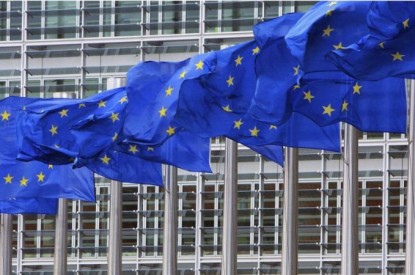Legislation
Spain – Spanish trade body presents compendium of allegations to European Commission
By Lewis - 24 July 2020
Jdigital, the Spanish Digital Gaming Association that brings together more than 80 per cent of the country’s online gaming operators, has presented a compendium of allegations to the European Commission to defend the interests and viability of the sector and related industries and to denounce discrimination between public and private gambling.
Jdigital has the support of the European Gaming and Betting Association (EGBA), which from the outset has positioned itself alongside the Spanish employers, considering the government’s proposed regulation equally disproportionate and unjustified. It also has the support of other actors who would also be negatively affected by the regulation.
“It is inadmissible to accept the urgent appeal for the approval of a regulation that presents such a different treatment between public and private gambling, especially when gambling is a legal activity in Spain that is already subject to strict controls and regulatory measures , most of them self-imposed by the sector itself,” stated Jdigital.
“This is a norm that completely silences the industry, with important consequences in terms of jobs and tax collection, at a time of economic crisis as difficult as the one we are experiencing. It is an ideological law, which has no support whatsoever in data or studies, given that in Spain there is no problem of gambling.”
Specifically, the employers have presented a compendium of allegations to the European Commission, focused on:
Failure to comply with the principles of good regulation since, in Jdigital’s opinion, there are no official data or studies that allow us to induce that gambling is currently a public health problem in Spain, as they have also admitted from the Ministry itself. of Consumption, which would not justify taking measures that restrict online gaming advertising to the point of subjecting the sector to de facto mutism.
The increase in illegal gambling during the state of alarm , as Jdigital has always alerted and has happened during the months of confinement, with the closure of 414 domains of illegal operators between April and May, double the number of websites that are usually intervened during a year of normal activity and without advertising restrictions. In addition, the association recalls in its allegations that the European Commission itself recognizes the importance of commercial communications in the online gaming sector, since it allows to differentiate legal operators and that they comply with all the necessary security and control measures, compared to operators illegals that are not subject to these regulations.
The arbitrariness in the justification of the law and the non-protection of vulnerable groups. Jdigital highlights that the lifting of advertising restrictions, which coincided with the return of sports competitions, was justified by the “coherence with the greater flexibility in the field of play established during phases II and III of the Plan for the Transition towards a new normality”, But at no time is reference made to the protection of consumers or vulnerable groups that was highlighted in Article 37 of the Royal Decree-Law of March.
The discrimination to which private play is subjected with respect to the public . Jdigital denounces the great differences in treatment between state gaming operators, such as ONCE or SELAE, in the face of the conditions in which private gaming companies operate and recalls that the same European Commission recommends promoting laws that give the same treatment to state gaming than to private play. In this sense, “from Jdigital we want to remember that operators like ONCE market their famous ‘rascas’, products that offer immediate satisfaction, throughout the country, at gas stations, kiosks, supermarkets, online, etc. without having to comply with the rigorous age controls that online gaming operators are subject to.”
The fact that in Spain there is no public health problem related to gambling. From Jdigital they demand that official data be taken as a reference when evaluating and approving regulatory measures that affect the gaming sector. Thus, they highlight that the reports AGES and STUDIES, of the National Plan on Drugs, indicate that the incidence of problem gambling in Spain, in people between 15 and 65 years old, is between 0.3 per cent and 0.5 per cent and has been stable in these terms for years. For this reason, they emphasize that “it cannot be concluded that there is a public health problem with gambling in Spain and, therefore, the regulation of commercial communications in this sector should not be compared to that of other products such as tobacco or spirits, where the addiction rate to these substances is 34 per cent and 5.1 per cent, respectively.”
The consequences of the restrictions for sports clubs and the media. The employers of the digital game focuses on the fact that the sport can lose up to €80m in advertising investment, as has already happened in other countries such as Italy due to the ban on advertising of the game. Likewise, they show their bewilderment due to the fact that just one day after the draft Royal Decree was presented to the European Commission, State Lotteries and Gambling announced two sports sponsorships, an activity that has been totally prohibited for private operators.
Failure to comply with the principles of competition and free market. Jdigital highlights, in its allegations, that the restrictions that are intended to be approved with the new text make it practically impossible for new legal operators to enter the sector.
Along with the presentation of the allegations to the European Commission, Jdigital is continuing conversations with relevant actors in the Spanish sector, including representatives of the sports industry and the media.


